In today’s business landscape, first impressions are crucial, and the efficiency of your operations can set the tone for a visitor’s perception of your company. Visitor management software has emerged as a pivotal tool in shaping a smooth, professional experience from the moment guests step through the door. This advanced software not only enhances security measures but also boosts operational efficiency across industries. Below, we delve into the significant benefits of implementing a visitor management system within your workplace.
Understanding Visitor Management Software

Visitor management software refers to a digital solution designed to track and manage the flow of guests, contractors, and employees within a facility. At its core, this technology replaces the traditional pen-and-paper logbooks with a more sophisticated, secure, and user-friendly system. It streamlines the process of registering visitors, issuing badges, and maintaining a detailed log of all entries and exits in real-time.
These systems often include advanced features that ensure efficient visitor processing and alignment with company policies. Visitor management solutions also typically include a host of notifications and alerts, keeping relevant personnel informed about who is in the building at any given time.
With the integration of visitor management technology, businesses can tailor the guest experience to varying security levels or specific visitor types. Whether it’s a VIP guest, a routine service provider, or a delivery personnel, each can be accommodated smoothly into daily operations with minimal disruption.
Enhancing Security and Compliance

Security is paramount in any organization, and digital visitor tracking significantly bolsters a facility’s ability to safeguard personnel and assets. Visitor management software requires guests to check in and out, leaving an auditable trail of activity that can be crucial in detecting and investigating security incidents.
These systems offer a strong first line of defense with features like photo capture and ID scanning. By enforcing identity verification and maintaining a database of visitor history, security teams are better equipped to prevent unauthorized access and quickly resolve any access-related discrepancies.
Data privacy and regulatory compliance are increasingly at the forefront of operational considerations. Digital visitor tracking ensures that sensitive information is secured against unauthorized access, and record-keeping is meticulous, aiding in adherence to the strictest of data protection laws.
Additionally, digital tracking can prove vital to any emergency action plan in the event of a situation. When swift reaction is required, having immediate access to accurate visitor records is invaluable for getting an accurate picture of everyone on the premises.
Analyzing Data and Reports to Enhance Operational Efficiency
Data and reporting functionalities are among visitor management software’s most strategic advantages. These systems generate detailed reports that uncover trends in visitor traffic, peak visit times, and frequent guests. Businesses can utilize this information to make data-driven decisions regarding staffing, reception area design, and service offerings.
By comprehensively analyzing visitor flow, organizations can identify and address inefficiencies that, previously, may have gone unnoticed. For instance, if data shows long wait times during certain periods, additional staff or self-service kiosks can be deployed to manage the increased workload.
Beyond operational considerations, these insights can drive marketing and customer relationship management initiatives. Understanding visitor demographics and behaviors enables businesses to tailor interactions and personalized greetings and offer more targeted amenities or information.
Integrating Visitor Management Systems with Other Tools and Technologies
The adaptability of visitor management systems means they can often be seamlessly integrated with other business tools and technologies. For example, integrating with email platforms enables automated invitation and follow-up emails, while linking with calendar apps can assist in coordinating meeting room bookings.
By connecting with security systems, such as security cameras and access control, visitor management software forms part of a unified security stance. If an unauthorized individual attempts access, the system can quickly flag the occurrence, and security personnel can react accordingly.
Moreover, workplace management software solutions can exchange data with visitor management systems to optimize space usage and resource allocation. Real-time visitor data allows for swift adjustments to temperature controls and lighting and can even signal when to prepare conference rooms or shared spaces.
Overall, adopting visitor management software represents a decisive step toward revolutionizing business operations through heightened security, increased efficiency, and an enhanced visitor experience. As companies continue to prioritize technological upgrades, these sophisticated systems play a central role in fostering seamless interfacing between visitors and organizations while maintaining vigilance on safety and compliance.

